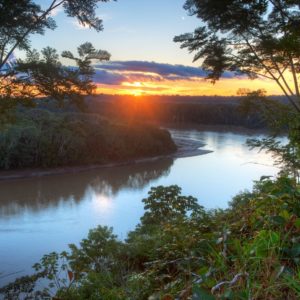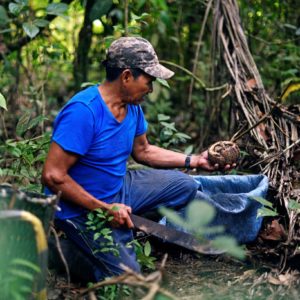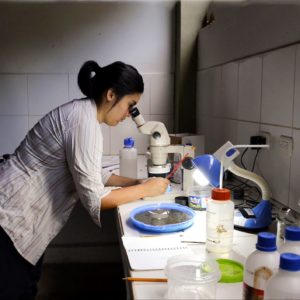Amazon Conservation has been at the forefront of conservation work in the Amazon for over 25 years. Now more than ever, there is an urgent need to protect this important natural area – both for our planet’s future as well as a healthier present for those that call the Amazon home today.
Despite its globally-acknowledged importance, unchecked deforestation is taking the Amazon closer to its “tipping point” where it will no longer be able to generate its own rainfall and support its ecosystems.
By combining our boots-on-the-ground approach with the latest in science and technology, as well as working to empower local peoples, governments, and indigenous communities, we are making a difference to save the Amazon.

We safeguard the most biodiverse place on Earth, home to irreplaceable habitats and wildlife.
Learn More
We partner with and support local people in protecting their forests while improving their quality of life.
Learn More
We apply the latest in science and technology to innovate how conservation is done.
Learn MoreWhen COP30 opened its doors in Belém, Brazil, the first United Nations climate summit ever held in the Amazon, it became clear that the world had arrived not only to negotiate but also to listen. With more than 190 countries represented, over 50,000 delegates gathered, and historic participation from more than 2,500 Indigenous leaders, […]
As we begin a new year filled with celebrations of our 25th Anniversary, this is the perfect moment to reflect on the strides we made in 2024 toward conserving and protecting the Amazon. 2024 was a year of incredible progress, collaborative action, and resilience in the face of global environmental challenges. From groundbreaking science that […]
New platform reveals the expansion of mining fronts across protected areas and Indigenous territories as gold prices soar, but partnerships put science to work for enforcement and accountability. Belém, Brazil, November 2025 — Amazon Mining Watch confirms widespread gold mining-related deforestation impacting 222 protected areas and Indigenous territories across all nine Amazonian countries, marking the […]